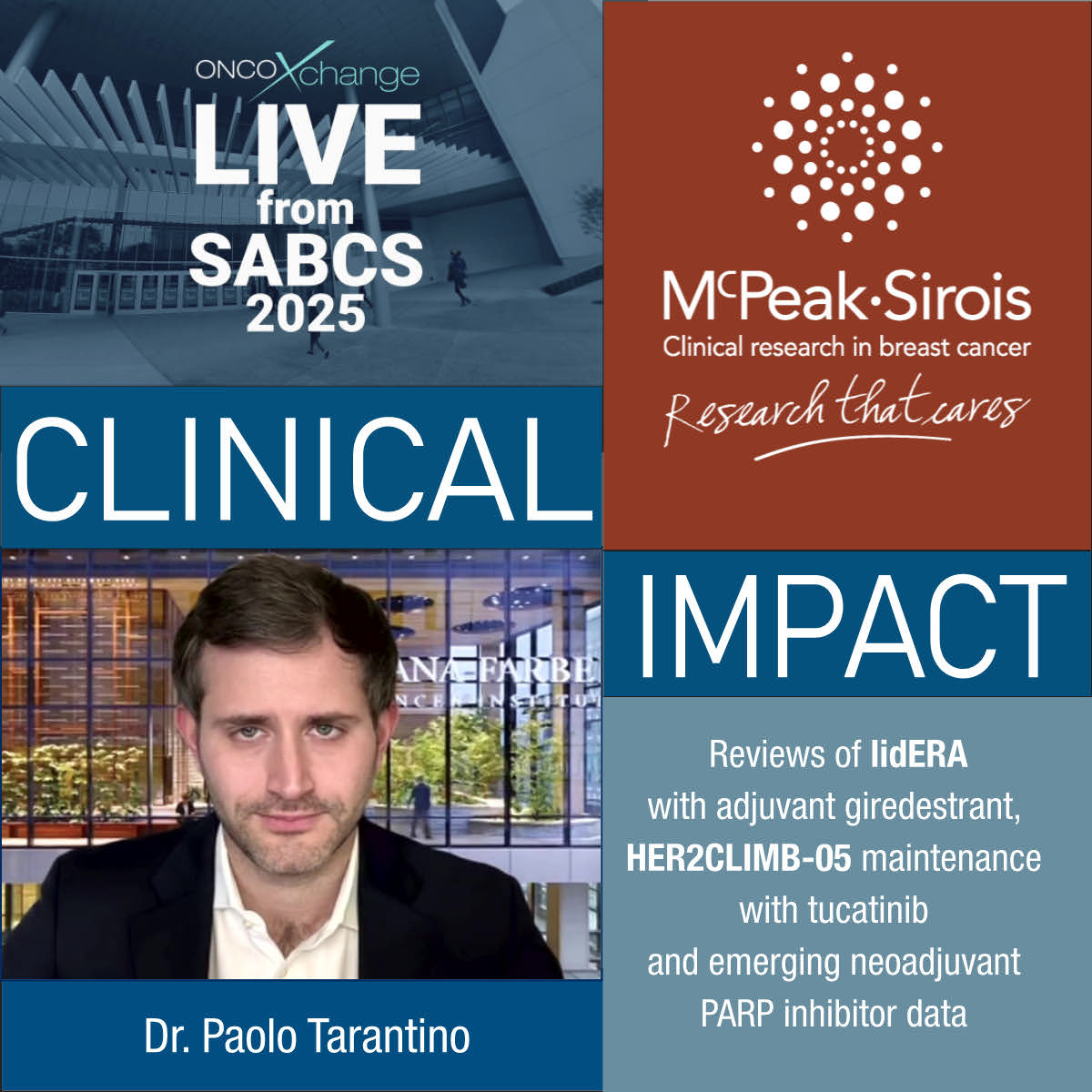
SABCS 2020 - Identifying optimal adjuvant Rx for early-stage ER+ breast cancer is unmet need
December 2020
By Wayne Kuznar for oncoXchange
Estrogen receptor (ER)-positive breast cancer (luminal breast cancer) is the most prevalent molecular subtype of early breast cancer, is increasing in frequency, and is responsible for the majority of breast cancer deaths, therefore making it arguably the largest unmet need in early breast cancer, said David A. Cameron, MBBS, MD, at the 2020 virtual San Antonio Breast Cancer Symposium.
Further, relapses and subsequent deaths from ER-positive breast cancer occur over a longer period of time compared with HER2-positive or triple-negative breast cancers, said Cameron, professor of oncology, University of Edinburgh, Scotland.
Although the annual rates of relapses and breast cancer death among patients with luminal breast cancer has improved in recent years, the rates of recurrence and death remain constant for at least 15 years after diagnosis, contributing to this unmet need.
“This disease is clearly sensitive to hormones, with arguably their adjuvant use ‘saving more lives’ than any other medicine used for cancer,” he said.
In terms of local treatment, “there isn’t anything different we should be doing for women with luminal rather than other types of breast cancer,” Cameron said.
Surgical management is therefore similar for luminal breast cancer versus other subtypes, with the caveat that lobular cancers, which are predominantly luminal, may be more difficult to image accurately, and thus mastectomy may be applied more often since tumor margins can’t be identified.
Although breast cancer subtype is prognostic for risk of local recurrence (higher for luminal vs. non-luminal breast cancer, especially in the first 5 years), “subtype doesn’t appear to be predictive for the benefit from radiotherapy,” he said. “Radiotherapy seems to work in all of our breast cancer subtypes, but the risk of recurrence and therefore the absolute benefit, may depend on risk factors including subtypes, which are prognostic, so the local treatment is largely independent of the subtype.”
As an add on to standard endocrine therapy, chemotherapy is often offered to patients at higher risk. Anthracycline-based chemotherapy reduces the risk of recurrence by 21% irrespective of ER status and whether endocrine therapy is administered sequentially or concurrently, he said.
“Chemotherapy works for cancers that are hormone receptor-positive, but we need to remember that in older trials, lower risk women, in particular node-negative women, were not enrolled,” said Cameron.
Identifying women who receive no benefit from chemotherapy, to spare the patient the toxicity of chemotherapy, would be advantageous. The MINDACT trial attempted to use a 70-gene signature as guidance for adjuvant chemotherapy, and found a small benefit to chemotherapy in patients at high clinical risk but low genomic risk of recurrence. “I don’t think MINDACT answers our question, however useful the study is in validating the power of a genomic test prognostically, which it did do,” he said. The conclusion from TAILORx is similar, which used a 21-gene assay, although it was underpowered to show a benefit to chemotherapy on the endpoint of distant disease-free metastasis.
Ideally, a clinical trial enrolling patient at significant clinical risk is needed to determine whether or not the addition of chemotherapy to endocrine therapy reduces the risk of recurrent events, Cameron said.
Use of adjuvant CDK4/6 inhibitors is tantalizing, but the duration of follow-up in studies comparing CDK4/6 inhibitors to aromatase inhibitors (median, 15 to 24 months) is probably too short to ascertain whether the CDK4/6 inhibitors are superior on the endpoint of recurrence.
“Most of the events in these trials have yet to happen, and will the bulk of the events be influenced or not by a couple of years of CDK4/6 inhibitor therapy, and if so, does it matter which drug [ie, abemaciclib or palbociclib], I think is still an unanswered question,” he said.
Use of bisphosphonates off-label on top of other proven therapies has improved recurrence and overall survival in postmenopausal women with early-stage luminal breast cancer with no evidence of detriment in terms of visceral metastases. The biggest effect of bisphosphonates appears to be in bone metastases.

Comments (0)